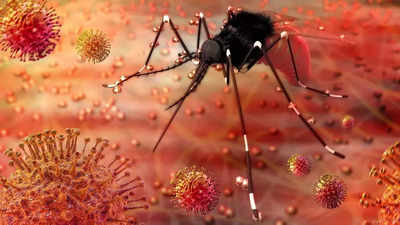- News
- City News
- mumbai News
- Maharashtra reported 140 of 151 Zika virus cases in India last year: WHO
Trending
Maharashtra reported 140 of 151 Zika virus cases in India last year: WHO
In 2024, Maharashtra reported 140 of the 151 Zika virus cases in India, according to the WHO. While Zika has been linked to neurological complications, the recent GBS outbreak in Pune was not connected to Zika but to Campylobacter jejuni. No Zika cases were reported in January.
MUMBAI: Of the 151 Zika virus cases reported in India in 2024, 140 were from Maharashtra, according to the World Health Organization’s latest outbreak assessment report.
While some ZIKV-infected adults and children may develop neurological complications, including Guillain-Barré Syndrome (GBS), which was widely reported in Pune, the WHO report clarified that no direct connection was found between the two at the time of the outbreak.
There was also no link found between Zika and the current GBS rise, said state health officials. “There are 10 viruses that can cause GBS post-infection. In the current outbreak, we conducted lab tests and confirmed that there is no linkage to the Zika virus. It was confirmed to be caused by Campylobacter jejuni,” said a state public health official.
Campylobacter jejuni is a type of bacteria commonly found in the intestines of animals and can spread through undercooked food and untreated or unboiled water.
GBS is a rare neurological disorder in which the body's immune system attacks the peripheral nerves, causing symptoms like muscle weakness, tingling, loss of reflexes, and, in severe cases, paralysis.
In both outbreaks, Pune was the epicentre. There were 127 suspected GBS cases so far, with two deaths; 20 are on ventilator support. Among the total of 140 Zika cases reported last year in the state, 125 were from Pune district, 11 from Ahmednagar district, and one case each from Kolhapur, Sangli, Solapur, and the Mumbai suburban area.
“Although the Zika virus is not unexpected in Maharashtra state, given the wide distribution of the vectors across India, the number of ZVD (Zika virus disease) cases reported in Maharashtra in 2024 is much higher than the numbers reported in previous years and is thus unusual. The actual incidence of ZVD could be higher due to the asymptomatic or mild clinical presentation in most ZIKV infections,” the report noted.
The Zika virus is transmitted to humans by the bite of an infected Aedes mosquito. It is also transmitted from mother to foetus during pregnancy, as well as through sexual contact, transfusion of blood and blood products, and possibly through organ transplantation. The state official said no Zika cases were reported this January.
End of Article
FOLLOW US ON SOCIAL MEDIA
Visual Stories
Hot Picks
TOP TRENDING
Explore Every Corner
Across The Globe












